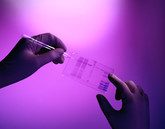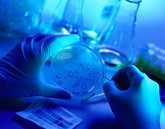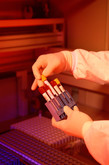Home/Guidelines
|
Posted 10/09/2009
In Europe, the patents of protein products manufactured using biotechnology started to expire in 2000, and more than 10 will have expired by the end of the decade, including patents for growth hormones, α-, β- and γ-interferon interferon, human insulins, epoetin alfa, interleukin 2, G-CSF, follitropin, streptokinase, and tissue plasminogen activator. As with traditional low-molecular-weight chemically derived pharmaceuticals, this allows the possibility of developing new and cheaper versions of these biopharmaceutical products. However, while the former products are relatively easy to manufacture, the latter ones are much more challenging to produce, for many reasons. Recombinant proteins are large molecules, which have a highly complex three-dimensional structure and are not synthesised in vitro, but produced and secreted by genetically modified cells. During this process, proteins can undergo posttranslational modifications, such as glycosylation, that lead to heterogeneity.




















